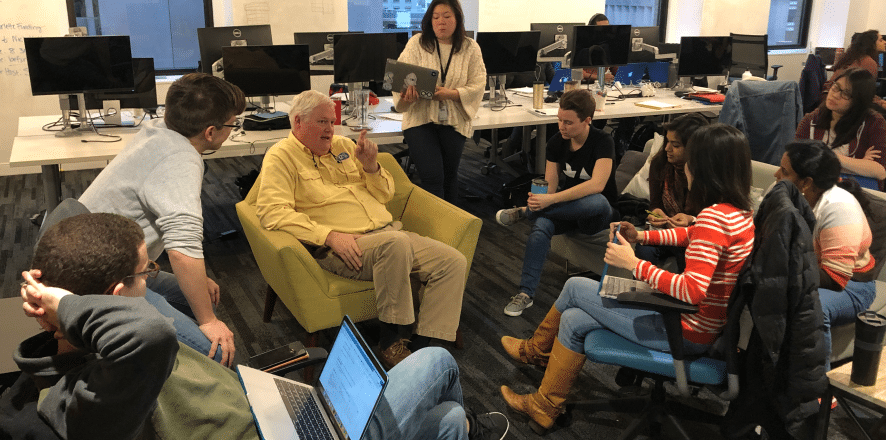In honor of Hispanic Heritage month, Zip Code Wilmington is exploring the need for Latino developers in the growing tech industry.
No one can deny the last decade’s tech boom. But as the number of tech jobs increases, those who are filling the positions have not been representative of the world we live in. The tech space has primarily been occupied by white males. In 2014, news headlines called out Apple for its 70% male and more than 50% white workforce. This lack of diversity is not exclusive to Apple, but mirrored the same from other tech giants including Yahoo, Google and Facebook. At the time, of Google’s employees, only 2% were black and 3% Latino.
The trend continued in 2015. Only 2.2% and 4.7%of tech professionals were black and Latino, respectively, according to the U.S. Census Bureau.
To Apple CEO Tim Cook’s credit, he took action by hiring a vice president for Inclusion and Diversity, Denise Young Smith. The move presented a way to hire more people of color in the tech space.
The notions commonly used to explain the lack of diversity in the tech industry include that there is a lack of qualified workers of color, and that the tech sector is investing in diversity initiatives that will yield results in the near future.
These disparities make spaces like Zip Code Wilmington more necessary than ever before, because we provide an accessible space for everyone to become developers.
Each one, teach one: Accessibility is key
Most debaters of the tech space’s lack of diversity can agree that it’s important to empower Latinos and other people of color with viable skills to lead in the tech space.
There are many organizations working to make sure students get the knowledge and skills to realize their creativity and leadership within the tech industry. For instance, the Hispanic Heritage Foundation has mobilized a team of Latino coders to travel to underserved school districts to inspire Latino youth to enter the tech industry.
The Hispanic Heritage Foundation, which was established by the White House in 1987, created the Code as a Second Language initiative to give Latino students, communities and entrepreneurs the tools their students need to enter the tech industry.
Access and exposure to tech tools at an early age is a major factor in driving creativity and sparking interest in STEM –– especially since, only 10% of U.S. public schools offer coding courses.
Another example is Hack Diversity, a program created by a coalition of business, academia, and nonprofits to recruit black and Latino computer science and engineering students from local urban colleges in Massachusetts.
That’s great news and a strong move in the right direction.
The impact of starting young has its benefits, but it leaves out young adults, career changers and the like. Unfortunately, a large percent of the initiatives created to increase diversity in the tech industry is focused on high school and college-aged participants, or require participants to travel to the nation’s top metropolitan tech hubs. Those who are older or have substantial familial and financial responsibilities are not always able to participate.
Zip Code Wilmington wants to help change the narrative
At Zip Code Wilmington more than 35% of our graduates represent racial and ethnic groups underrepresented in tech. Comparing our statistics to the percentage of black (4.7%) and Latino (2.2%) tech professionals in the U.S., it becomes evident that we are looking to open access to those who are commonly overlooked – and we want to continue to improve.
No matter your ethnicity, race, age, gender, educational background, or professional background, Zip Code Wilmington coaches everyday, motivated people from diverse backgrounds into skilled, professional developers.
Empowering you with skills then allows you to empower those in your community to grow an interest in tech. It also allows you a seat at the table to be a part of important diversity initiatives in tech. You can help change the world, one line of code at a time.
To get more information on our boot camp program, register for our next info session on October 3rd.
Cites:
“Apple’s New Diversity Officer Will Report Directly to the CEO,” http://fortune.com/2017/05/23/apple-diversity-officer-young-smith/
“Why there aren’t more Latinos in the tech industry,” http://www.msnbc.com/jose-diaz-balart/the-latino-tech-imperative
“Code as a Second Language,” http://www.loftcsl.org/about/
